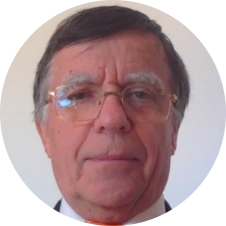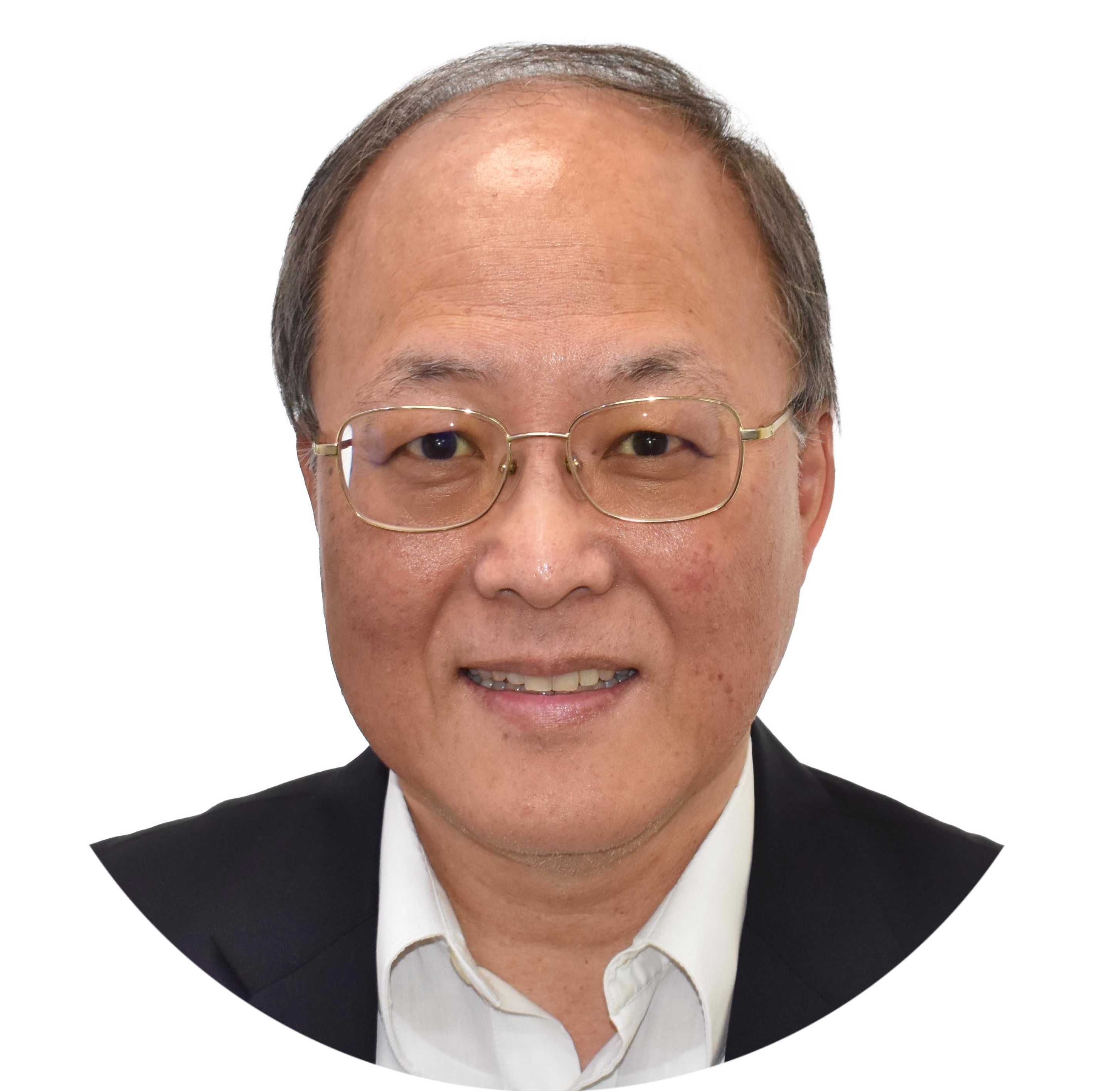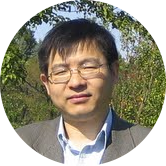Prof. O. Bonnaud
Emeritus Professor at University of Rennes, France
Executive Director of National Coordination for Higher Education in
Microelectronics and Nanotechnologies, GIP-P-CNFM, France
Guest Professor at Southeast University, China

Speech Title: The Strategy of Microelectronics Education to Face the Future Challenges of The New Digital World
Abstract: The global development of digital technology has invaded our 21st-century world, and applies equally to industry, finance and government. This field has experienced exponential growth since 2005, accelerating with digital payments, and with the arrival of crypto-currencies, 5G-6G, and above all artificial intelligence (AI). Transparency on the user side of this digital world masks the fact that the associated consumption of energy and natural resources (rare elements) is also growing exponentially. In fact, we risk reaching a global energy impasse over the next decade, with digital energy consumption outstripping current global electricity production. The hardware part of the digital world is physically based on electronics and microelectronics. Today's challenge is to reduce the energy consumption of all electronics and minimize the use of rare elements in advanced technologies. The development of new technologies involving new component and circuit architectures and new materials should go some way towards meeting these needs. After presenting the context and challenges, various proposals for improving electronics, both technologically and architecturally, are detailed. But all these improvements can only be achieved if future employees in the sector are capable of innovation. Indeed, on a global scale, the microelectronics profession is experiencing a growing skills deficit, corresponding to a serious recruitment shortage. There is an urgent need to attract and train new specialists in this field. The final part of the presentation is devoted to the actions taken by the French national network for higher education in microelectronics to meet these challenges.
Bio: Olivier Bonnaud, born in
1950 in France, is a student of the Ecole Normale Supérieure de
Paris-Saclay and holds a PhD in microelectronics. In 1984, he
became a full professor at the University of Rennes 1 and at
Supelec (engineer school), where he created a microelectronics
research laboratory that he directed until 2010, as well as
several international masters and PhD programs in
microelectronics engineering. He supervised 43 PhDs, worked in
cooperation with microelectronics companies, on integrated and
thin film technologies. He has published or presented more than
500 papers and written 7 books. He was member of more than 300
PhD defense juries, and chairman/co-chairman of more than thirty
international conferences.
Founder in 1985 of a regional inter-university joint center for
microelectronics education (CCMO), he directed it until 2010,
when he was appointed by the French Ministry of Higher Education
as Executive Director of the National Coordination for Higher
Education to Microelectronics and nanotechnologies (GIP-CNFM), a
network of 12 French inter-university training centers that
hosts about 20,000 students per year for practical training on
technological platforms, including 7 cleanrooms. President of
several scientific associations in electrical engineering,
evaluator and expert for several research and higher education
international agencies, he is professor emeritus since 2013.
As part of his many international cooperation’s, he was selected
for the "1000 global talents" program by the Chinese government
in 2013. In 2018, he was awarded of the Jiangsu Province
Friendship Medal for his 14 years scientific cooperation with
SEU (Nanjing). Since 2019, he has been heavily involved in the
French Strategic Committee of the Electronic Industry sector and
is presently piloting a 5 years national project on “Skills and
Jobs of the Future” in the field, in the frame of France 2030
governmental program.
Prof. Kin K. Leung
Tananka Chair Professor of Imperial College, U.K.
Fellow of the Royal Academy of Engineering
Member of Academia European, IEEE Fellow, IET Fellow
Imperial College, U.K.

Speech Title: Optimization by
Learning and Federated Learning for Communication Networks
Abstract: Allocation of network resources to competing demands
is an important problem for efficient design and management of future
communication networks. The complexity of the issue is compounded by system
dynamics in terms of fluctuation of resource demands and availability. On the
future communication networks, users do not expect them to support only
conventional multi-media services, but also future artificial intelligence (AI)
and machine-learning (ML) applications for sensing and communications.
In the first part of this speech, the speaker will discuss the issue of network
resource allocation. Specifically, he will present a new machine-learning method
by using two Coupled Long Short-Term Memory (CLSTM) networks to quickly and
robustly produce the optimal or near-optimal resource allocation, which is
modeled as constrained optimization problem, over a range of system parameters.
Numerical examples for allocation of network resources will be presented to
confirm the validity of the proposed method.
In the second part, the speaker will present new approaches to supporting
federated learning (FL) and improving the learning process by model pruning in
communication networks with resource constraints. The FL technique learns the
model parameters from data collected at distributed nodes and adapts according
to the limited availability of resources. The key idea of model pruning is to
remove unimportant model parameters to reduce computation and communication
burden and speed up the learning convergence, while maintaining the model
accuracy. Using real datasets, the experimentation results show that the
proposed approaches perform near to the optimum or offer significant performance
improvement over other methods.
Bio: Kin K. Leung received his B.S. degree from the Chinese
University of Hong Kong, and his M.S. and Ph.D. degrees from University of
California, Los Angeles. He worked at AT&T Bell Labs and its successor companies
in New Jersey from 1986 to 2004. Since then, he has been the Tanaka Chair
Professor in the Electrical and Electronic Engineering (EEE), and Computing
Departments at Imperial College in London. He also served as the Head of
Communications and Signal Processing Group in the EEE Department at Imperial
from 2009 to 2024. His current research focuses on optimization and machine
learning for system design and control of large-scale communications, computer
and quantum networks. He also works on multi-antenna and cross-layer designs for
wireless networks.
He is a Fellow of the Royal Academy of Engineering, IEEE Fellow, IET Fellow, and
member of Academia Europaea. He received the Distinguished Member of Technical
Staff Award from AT&T Bell Labs (1994) and the Royal Society Wolfson Research
Merits Award (2004-09). Jointly with his collaborators, he received the IEEE
Communications Society (ComSoc) Leonard G. Abraham Prize (2021), the IEEE ComSoc
Best Survey Paper Award (2022), the U.S.–UK Science and Technology Stocktake
Award (2021), the Lanchester Prize Honorable Mention Award (1997), and several
best conference paper awards. He was an IEEE ComSoc Distinguished Lecturer
(2022-23). He was a member (2009-11) and the chairman (2012-15) of the IEEE
Fellow Evaluation Committee for the ComSoc. He has served as an editor for 10
IEEE and ACM journals and chaired the Steering Committee for the IEEE
Transactions on Mobile Computing. Currently, he is an editor for the ACM
Computing Survey and International Journal of Sensor Networks.
Prof. Jiangzhou Wang
International Member of the Chinese Academy of Engineering (CAE)
Fellow of the Royal Academy of Engineering (RAEng), U.K.
Fellow of IEEE, Fellow of IET
University of Kent, UK

Speech Title: mmWave Integrated
Communications and Sensing
Abstract: Integrated communications and sensing (ISAC) has
become very popular for the next generation mobile communications. This seminar
will introduce the concept and challenges of using milimeter wave (mmWave) for
ISAC. The latest research results in mmWave ISAC will be presented in
conjunction with hybrid beamforming and rate splitting multiple access
technologies.
Bio: Jiangzhou Wang is a Professor with the University of Kent,
U.K. He has published more than 500 papers and five books. His research interest
is in mobile communications. He was a recipient of the 2022 IEEE Communications
Society Leonard G. Abraham Prize. He was the Technical Program Chair of the 2019
IEEE International Conference on Communications (ICC2019), Shanghai, Executive
Chair of the IEEE ICC2015, London, and Technical Program Chair of the IEEE
WCNC2013. He is/was the editor of multiple international journals, including
IEEE Transactions on Communications from 1998 to 2013. Professor Wang is an
International Member of the Chinese Academy of Engineering (CAE), a Fellow of
the Royal Academy of Engineering (RAEng), U.K., Fellow of the IEEE, and Fellow
of the IET.
Prof. Xiang-Gen Xia
IEEE Fellow
Chang Jiang Chair Professorship (visiting), China
Charles Black Evans Professor
University of Delaware, USA

Speech Title: Some Thoughts on 6G
Modulation
Abstract: I will talk about some of my own thoughts on 6G modulation. I
think that 6G modulation should be a trade-off between complexity and
performance. Two extremes are OFDM and single carrier frequency domain equalizer
(SC-FDE). I will briefly introduce vector OFDM (VOFDM) that is in the middle of
the two, and is a natural trade-off of complexity and performance, in particular
for time-varying channels (delay Doppler channels).
Bio: Xiang-Gen Xia is the Charles Black Evans Professor, Department of
Electrical and Computer Engineering, University of Delaware, Newark, Delaware,
USA. Dr. Xia was the Kumar’s Chair Professor Group Professor (guest) in Wireless
Communications, Tsinghua University, during 2009-2011, the Chang Jiang Chair
Professor (visiting), Xidian University, during 2010-2012, and the World Class
University (WCU) Chair Professor (visiting), Chonbuk National University, South
Korea, during 2009-2013. He received the National Science Foundation (NSF)
Faculty Early Career Development (CAREER) Program Award in 1997, the Office of
Naval Research (ONR) Young Investigator Award in 1998, the Outstanding Overseas
Young Investigator Award from the National Nature Science Foundation of China in
2001, and the Information Theory Outstanding Overseas Chinese Scientist Award
from the Chinese Information Theory Society of Chinese Institute of Electronics
in 2019. Dr. Xia was the General Co-Chair of ICASSP 2005 in Philadelphia. He is
a Fellow of IEEE. His current research interests include space-time coding, MIMO
and OFDM systems, digital signal processing, and SAR and ISAR imaging. He is the
author of the book Modulated Coding for Intersymbol Interference Channels (New
York, Marcel Dekker, 2000) and a co-author of the book Array Beamforming Enabled
Wireless Communications (New York, CRC Press, 2023).
Prof. Guan Gui
IEEE Fellow, IET Fellow
AAIA Fellow, IEEE VTS Distinguished Lecturer
Nanjing University of Posts and Telecommunications, China

Speech Title: Intelligent Signal
Sensing and Recognition Techniques Towards 6G
Abstract: The dawn of 6G wireless communication introduces a
transformative era characterized by pervasive sensing and advanced intelligent
identification, essential for ensuring physical security. This keynote speech
highlights the integration of Artificial Intelligence (AI) and Deep Learning
(DL) as pivotal in addressing the dynamic and complex challenges of 6G networks.
We emphasize the role of AI in revolutionizing signal sensing and recognition.
Our discussion centers on the application of these neural networks in enhancing
signal detection, classification, and Specific Emitter Identification (SEI). By
leveraging gradient-based optimization techniques, we demonstrate how ANNs can
improve model and algorithm parameterization, leading to a data-driven approach
that surpasses traditional rule-based systems. This advancement is crucial in
the physical layer of wireless communications, where intelligent signal
recognition plays a key role in maintaining security and efficiency. We also
explore the challenges faced by conventional model-based methods in the evolving
landscape of 6G communication systems, which are marked by complex interference
and uncertain channel conditions. DL emerges as a solution, offering innovative
strategies for redesigning baseband module functionalities, including
coding/decoding and detection processes. In conclusion, this keynote underscores
the significance of integrating intelligent signal sensing and recognition with
DL technologies in 6G networks. This approach not only enhances physical
security but also paves the way for a more robust, efficient, and intelligent
wireless communication ecosystem, capable of meeting the security demands of the
future.
Bio: Guan Gui received the Ph.D. degree from the University of
Electronic Science and Technology of China, Chengdu, China, in 2012. From 2009
to 2014, he joined Tohoku University as a Research Assistant and a Post-Doctoral
Research Fellow. From 2014 to 2015, he was an Assistant Professor with Akita
Prefectural University, Akita, Japan. Since 2015, he has been a Professor with
the Nanjing University of Posts and Telecommunications, Nanjing, China. He has
published more than 200 IEEE journals/conference papers. His recent research
interests include intelligence sensing and recognition, intelligent signal
processing, and physical layer security. Dr. Gui contributions to intelligent
signal analysis and wireless resource optimization have earned him the title of
fellow of the IEEE, IET, and AAIA. He was a recipient of several Best Paper
Awards, such as ICC 2017, ICC 2014, and VTC 2014-Spring. He received the IEEE
Communications Society Heinrich Hertz Award in 2021, top 2% scientists of the
world by Stanford University from 2021 to 2023, the Clarivate Analytics Highly
Cited Researcher in Cross-Field from 2021 to 2023, the Highly Cited Chinese
Researchers by Elsevier from 2020 to 2023, a member and Global Activities
Contributions Award in 2018, the Top Editor Award of IEEE Transactions on
Vehicular Technology in 2019, the Outstanding Journal Service Award of KSII
Transactions on Internet and Information System in 2020, the Exemplary Reviewer
Award of IEEE Communications Letters in 2017, the 2012 Japan Society for
Promotion of Science (JSPS) Postdoctoral Fellowships for Foreign Researchers,
and the 2018 Japan Society for Promotion of Science (JSPS) International
Fellowships for Overseas Researchers. He was also selected as the Jiangsu
Specially-Appointed Professor in 2016, the Jiangsu High-Level Innovation and
Entrepreneurial Talent in 2016, and the Jiangsu Six Top Talent in 2018.